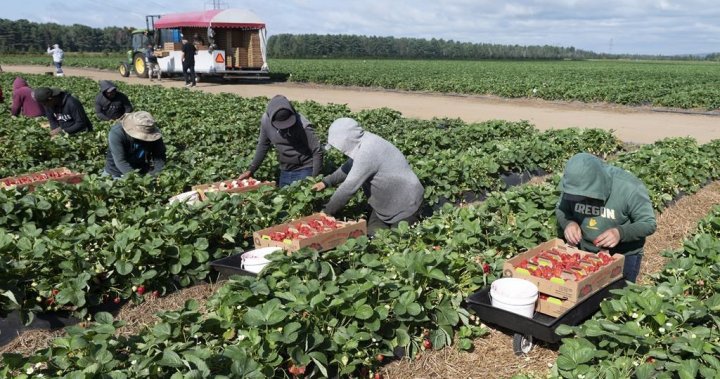Ontario is making changes to how it compensates injured migrant workers. The Workplace Safety and Insurance Board (WSIB) president Jeff Lang announced that the board will revamp its payment system for workers who cannot return to their original job due to injury but are able to work elsewhere. Currently, the WSIB pays workers 85% of their salary if they are injured on the job and unable to return to their previous role, but deducts money earned from other work. Lang believes this is unfair, especially for migrant workers who often earn significantly less in their home countries. The WSIB is now reviewing 50 claims dating back to 2007 and will likely be paying out retroactive compensation amounting to millions of dollars.
Last September, the Workplace Safety and Insurance Appeals Tribunal ruled in favor of four injured migrant workers who argued for better compensation. The tribunal found that the WSIB was wrong to assume seasonal migrant workers were only eligible for 12 weeks of income-loss compensation through the Seasonal Agricultural Worker Program if they had been injured. It was noted that the loss-of-earnings provisions did not take into account the individual circumstances of the workers, such as their ability to work or find a job after the injury. The tribunal stated that long-term loss of earnings benefits for migrant agricultural workers should be based on their ability to earn in their actual local labor market.
Despite the tribunal’s ruling, the WSIB had already started reviewing its interpretation of the legislation. Lang stated that the tribunal’s decision further convinced the organization that it was on the right track to addressing the problem of inadequate compensation for injured migrant workers. He emphasized that all workers injured while working in Ontario will be treated equally, with dignity, respect, and compassion. The WSIB aims to ensure that injured workers, including migrant workers, are fairly compensated and not discriminated against based on their nationality or residency status. Lang expressed regret for the province’s previous unfair treatment of injured migrant workers and is committed to making it right.
The changes in Ontario’s compensation system for injured migrant workers come as a response to years of unfair treatment and discrimination faced by this vulnerable group. Migrant workers who come to Ontario to work and get injured often find themselves in a difficult situation, where they are sent back to their home countries with inadequate compensation for their injuries. The WSIB’s new approach aims to rectify this issue by ensuring that all injured workers, regardless of their background, receive fair and just compensation for their injuries. The retroactive compensation being paid out to workers dating back to 2007 is a step towards correcting past injustices.
The WSIB’s decision to review its payment system and provide retroactive compensation to injured migrant workers is a positive development in Ontario’s approach to workers’ rights and employment conditions. By acknowledging and rectifying past injustices, the WSIB is working towards a more equitable and fair system for all workers in the province. This commitment to fairness and justice for migrant workers sets an important precedent for other jurisdictions and industries to ensure that all workers are treated with dignity, respect, and compassion, regardless of their nationality or residency status. The changes being implemented by the WSIB highlight the importance of protecting the rights and well-being of all workers, especially those who are most vulnerable and marginalized in the labor market.













